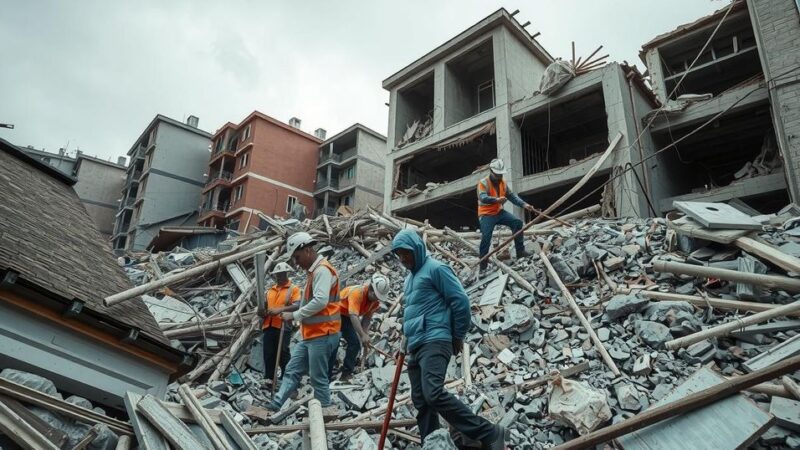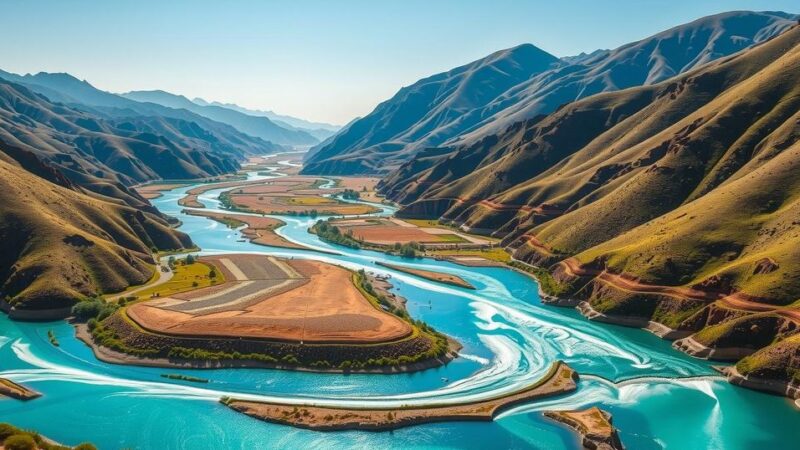Tanzania’s Maasai are concerned about carbon credit projects that threaten their ancestral lands and way of life. These initiatives, promoted by international entities, often lack transparency and informed consent, leading to fears of land dispossession. Advocates call for a halt to new agreements until communities fully comprehend the implications of carbon trading, emphasizing the need for protection of indigenous rights amidst growing governmental support for these projects.
In Tanzania’s Longido region, indigenous Maasai pastoralists are expressing concerns regarding carbon credit projects. These initiatives, promoted by international corporations and conservation groups, have transformed ancestral lands into tradable assets, raising fears of land dispossession and cultural erosion. The Maasai International Solidarity Alliance (MISA) argues that such projects must involve informed consent rather than deception, as many are pressured into agreements that threaten their traditional way of life.
Two substantial carbon credit projects, the Longido and Monduli Rangelands Carbon Project and the Resilient Tarangire Ecosystem Project, require local Maasai communities to alter their grazing practices for revenue from carbon credits. These arrangements disrupt the sustainable pastoral practices that have defined the Maasai’s relationship with their land for centuries. Many community members are confused and feel deceived by these long-term agreements, leading to fears they are being coerced into abandoning their heritage.
These carbon credit contracts often feature complex terms, drafted in English or complicated legal Swahili, which limit community rights and make withdrawal challenging. Furthermore, signing bonuses, while seemingly enticing, offer little compared to the profits anticipated by foreign investors. MISA highlights the lack of genuine consultation among community members, particularly women and the youth, raising questions about the legitimacy of consent under such circumstances.
MISA is advocating for a five-year moratorium on new carbon projects to allow communities to understand the implications of such agreements fully. They stress that conservation efforts must hinge on informed consent, rather than deception and exploitation, emphasizing a fundamental need for transparency and fairness in these negotiations.
Historically, the Maasai have faced significant land loss due to national parks and conservation efforts, leading to increased tensions within their communities. The new carbon projects further complicate land use by enforcing fixed grazing patterns and restricting movement essential for pastoral survival, thereby threatening their livelihoods and cultural identity. Critics argue these initiatives represent a new form of land grabbing.
Despite the Maasai’s resistance and calls for protection, the Tanzanian government remains focused on advancing carbon credit initiatives, emphasizing economic potential and the need for improved transparency in contracts while neglecting the voices of the affected communities. The long-term implications of these projects remain a pressing concern, with many Maasai activists urging a course of action to ensure their traditions and existence are not compromised.
The ongoing carbon credit initiatives in Tanzania pose significant threats to the Maasai community, challenging their cultural identity and economic survival. While these projects aim to address environmental concerns, they often do so at the expense of the very communities they seek to benefit. The need for informed consent, transparency, and the recognition of indigenous rights has underscored the urgent call for a reassessment of how conservation efforts are implemented, ensuring that local populations are not marginalized or exploited in the process.
Original Source: www.aa.com.tr






